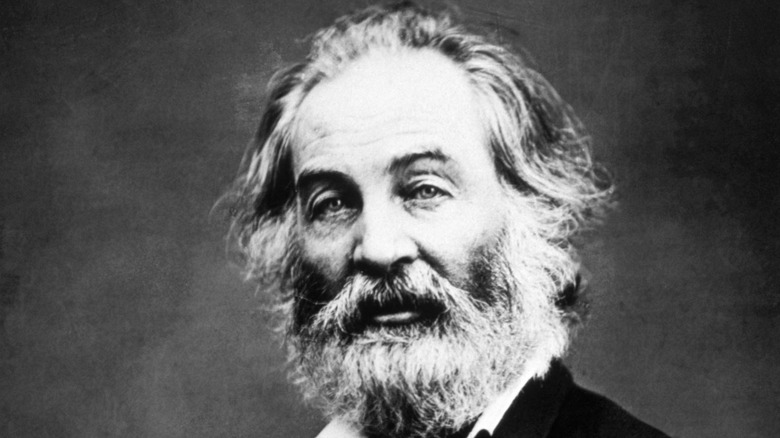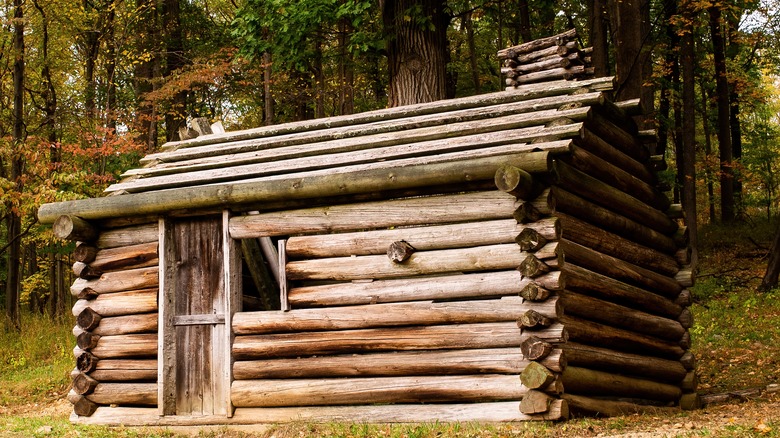Where Does The Phrase 'The Whole Shebang' Come From?
The American word "shebang" (alternately, "shabang") first appeared during the Civil War and, according to linguists, is pretty darn weird (via Merriam-Webster). The genesis of this word is not obvious — the Oxford English Dictionary simply states that it's "of obscure origin" (via Word Detective) — and in its first use it had several distinct meanings: a house, a vehicle, a bar, or, in the case of the phrase "the whole shebang," basically everything under the sun.
While those other meanings have faded today, "the whole shebang" is still widely in use. "The Whole Shabang," for instance, is a brand of "jail chips" — potato chips available within America's carceral system (they're apparently very good, with ex-cons coming out of prison absolutely craving them, according to NBC News).
Where did the phrase come from, and why does the expression "the whole shebang" feel so all-encompassing? The answer goes all the way back to the poet Walt Whitman in the 1860s.
Whitman, Twain, and a dash of Irish
According to Merriam-Webster, the word was likely first used in reference to a makeshift dwelling, such as an improvised hut. This is how Walt Whitman used the term in his journal and memoir, "Specimen Days," his writings from 1862 to 1865, in which he discusses Civil War soldiers living in "shebang enclosures of bushes." Additional sources from the time period show the word "shebang" being applied to other rudimentary shelters, such as shacks or cabins, or even inns and taverns, possibly influenced by the Irish word "síbín" ("illicit whiskey") which turned into "shebeen" ("illegal pub").
Mark Twain used the word "shebang" in this sense in his 1872 book, "Roughing It," but strangely enough, he included another meaning of the word in the very same book, according to Word Detective. "You're welcome to ride here as long as you please, but this shebang's chartered," he wrote, speaking of a vehicle (in this case, a chartered coach). There's a chance this meaning derives from the French term "char-à-banc," meaning "benched carriage."
Maybe the multiple meanings of the word "shebang" led to it getting used sort of like "thingamajig" or "gizmo," a placeholder word for basically anything. Twain, again, was an early adopter of the word in this sense. In a 1869 letter to his publishers, he wrote: "I like the book, I like you and your style and your business vim, and believe the chebang [sic] will be a success." Today, it's this meaning that has endured.

